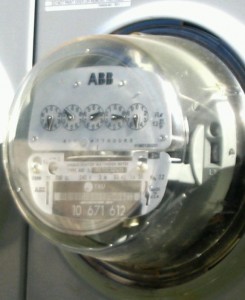
Although top executives of Japan’s major companies remain keen on investing in the Philippines given the country’s “strong growth potential,” they continue to stress the need for the government to address pressing concerns, such as high power costs, which are necessary to create a more conducive environment for trade.
MANILA, Philippines–Although top executives of Japan’s major companies remain keen on investing in the Philippines given the country’s “strong growth potential,” they continue to stress the need for the government to address pressing concerns, such as lack of adequate infrastructure and high power costs, which are necessary to create a more conducive environment for trade.
At the same time, Japanese firms are seeking a “status quo” on the country’s incentive regime, as the proposed changes may only drive away investors.
Akio Mimura, chair of Japan Chamber of Commerce and Industry, said in a briefing late Thursday that they took up these issues with President Aquino during a courtesy call at Malacañang.
Mimura is part of what is considered to be the largest, top-level business delegation from Japan, composed of about 100 top executives wanting to tap various trade and investment opportunities in the Philippines.
According to Mimura, the Philippines’ strength lies not only in its sustained economic growth, but also in its demographic situation, where the median age is roughly 23 years. This translates to a huge and able labor force.
Add to that is the fact that Filipinos are eager to work and have shown loyalty at work, Mimura said, citing the low incidence of industrial disputes or strikes.
But the Japanese businessman noted that, despite all these good points, the Philippine government must resolve pressing issues, which are deemed critical in boosting the overall competitiveness of the country.
Mimura also mentioned the significance of the public-private partnership scheme, where government has been rolling out the necessary infrastructure projects.
The Japanese businessmen, Mimura said, are “impressed” by the fact that a number of such projects are already being implemented in the Philippines.
“We are happy given that the Philippine government is fully and completely aware of those issues and problems on infrastructure. One of the positive responses to these problems, for power for instance, was that the country’s renewable energy sector is being developed, while power plants are being planned to be put up. Philippine officials also said there are particular incentives given to those who decide to invest in power generation in certain areas where supply is tight. They urged Japanese investors to study these special incentives,” he added.
According to Nobuo Fujii, vice president of Japanese Chamber of Commerce and Industry of the Philippines Inc., the group hopes that the government will retain the current fiscal incentive regime, particularly that which is being implemented in the areas managed by the Philippine Economic Zone Authority.
He said changing these programs would only deter investors.
Fujii noted that the group is not in favor of changing the rules on incentives, especially since the Philippines is currently the top-of-mind choice among Japanese investors seeking a new manufacturing location outside China.
There are about three Japanese firms that are set to come into the country, while a small plastic molding company, which will serve three printer companies (Epson, Brothers and Canon), is set to open its facility soon, Fujii added.
“More companies are coming in, but [with these changes in fiscal] policy, many are becoming a bit hesitant to do so.”